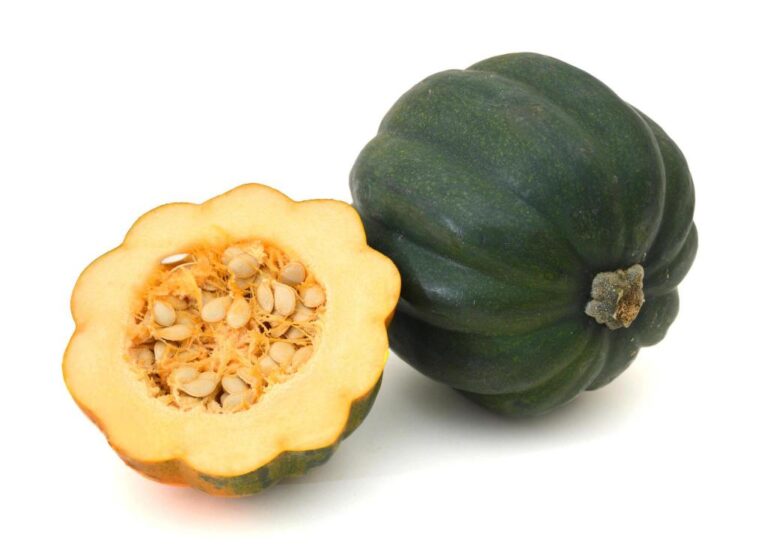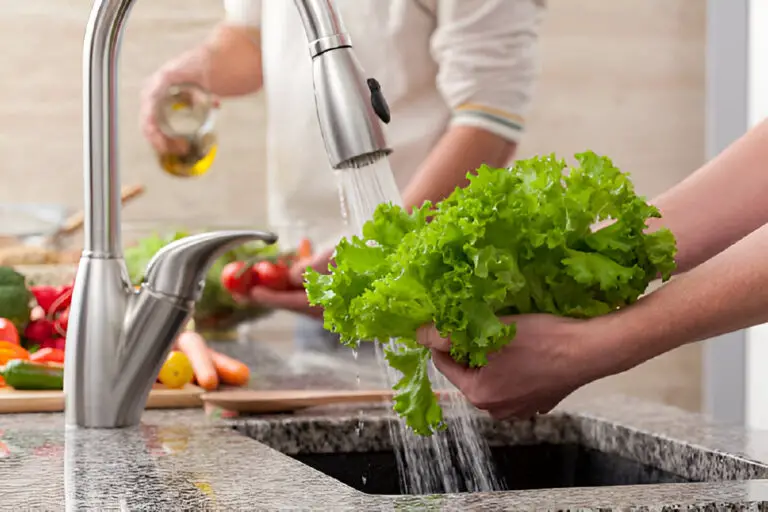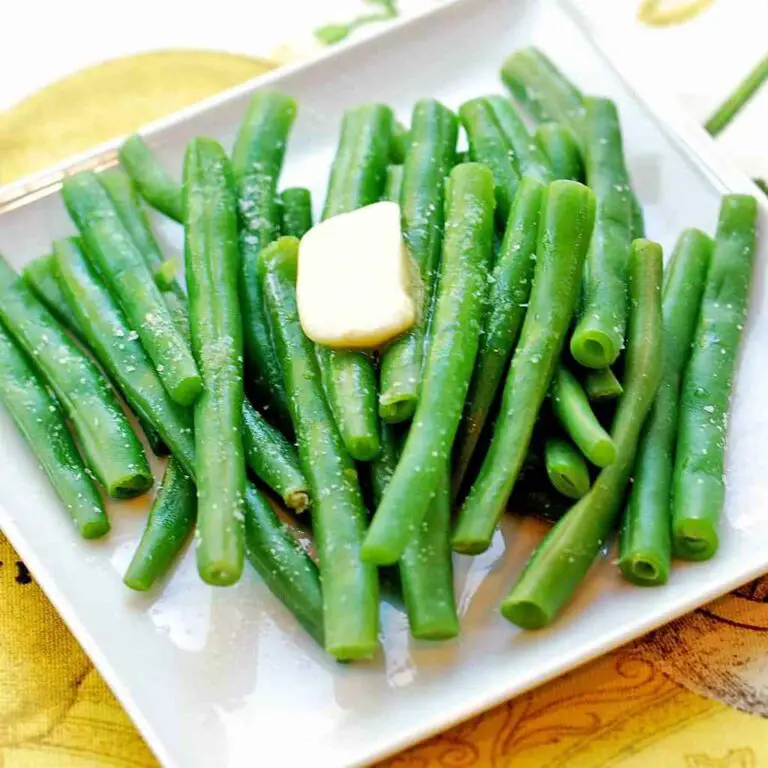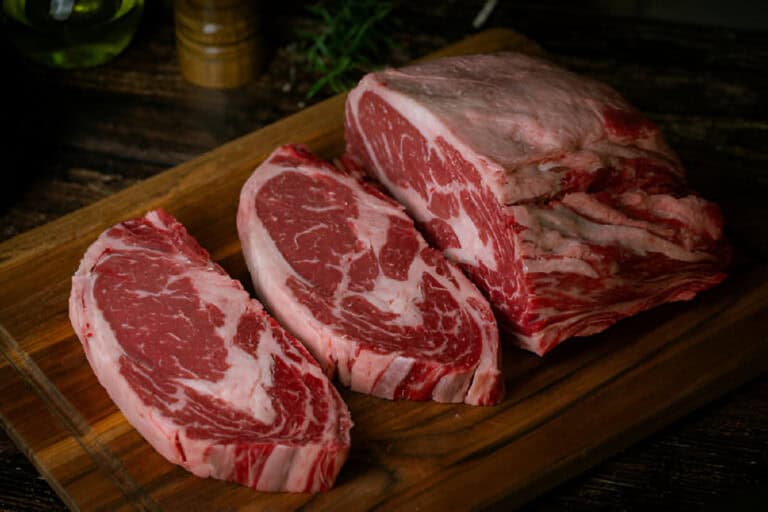How Long To Boil Brussels Sprouts Before Roasting? Timing Is Key
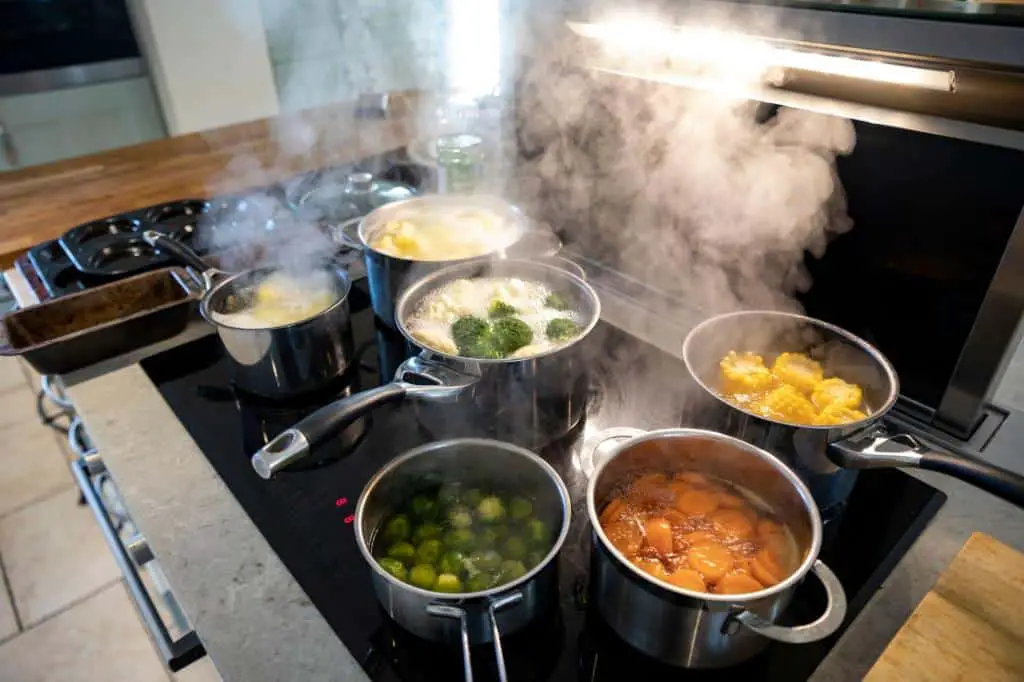
Are you a fan of Brussels sprouts? These vibrant green vegetables have become increasingly popular in recent years, thanks to their nutritional benefits and versatility in the kitchen. Whether you’re planning a special dinner or simply looking to add a nutritious side dish to your meals, knowing the best cooking techniques is key.
One question that often arises when it comes to preparing Brussels sprouts is how long to boil them before roasting. Boiling Brussels sprouts before roasting can make a significant difference in their texture and overall flavor profile. It’s all about finding that delicate balance between tenderness and maintaining a satisfying crunch.
In this article, we’ll uncover the optimal boiling time for Brussels sprouts to ensure they come out perfectly tender and ready for roasting. Get ready to elevate your Brussels sprout game and impress your friends and family with these mouthwatering vegetables!
Understanding the Importance of Boiling Brussels Sprouts Before Roasting
When it comes to roasting Brussels sprouts, the importance of boiling them beforehand should not be overlooked. Boiling Brussels sprouts before roasting serves several essential purposes that contribute to the overall taste and texture of the dish.
Firstly, the process of boiling allows the sprouts to soak up the flavors of any seasonings or spices added to the boiling water. As the sprouts cook, they absorb these aromatic elements, resulting in a more complex and delicious flavor profile.
In addition to enhancing the taste, boiling Brussels sprouts also plays a crucial role in tenderizing them. These miniature cabbages can sometimes be tough and fibrous, but boiling helps break down their cellular structure, resulting in a softer and more palatable texture. This ensures that each bite of the roasted sprouts is tender and enjoyable, without any unpleasant chewiness.
Furthermore, boiling Brussels sprouts before roasting can significantly reduce the overall cooking time. By partially cooking the sprouts through boiling, you give them a head start in the cooking process.
This means that when they enter the oven for roasting, they require less time to reach the desired level of doneness. This not only saves you time in the kitchen but also ensures that the sprouts are perfectly cooked through without becoming overcooked or mushy.
How Long Should I Boil Brussels Sprouts Before Roasting?
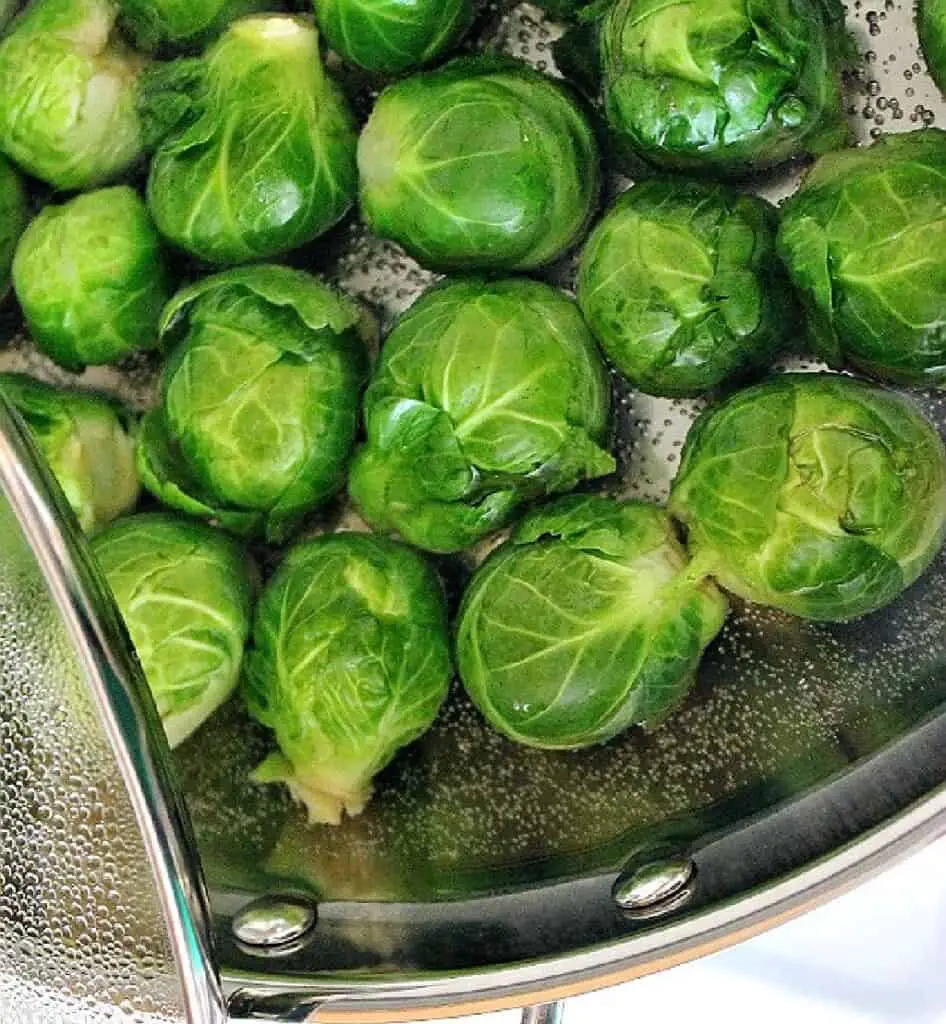
The boiling time for Brussels sprouts depends on several factors, including their size and freshness. Smaller sprouts typically require less boiling time compared to larger ones.
Here are some general guidelines for boiling Brussels sprouts:
- 5 to 7 minutes: This boiling time will result in sprouts that are slightly firm with a pleasant crunch. They are ideal if you plan to roast them further in the oven or use them in salads.
- 8 to 10 minutes: Boiling the sprouts for this duration will yield a softer texture, making them easier to eat. They will still hold their shape, but will be more tender.
- 11 to 15 minutes: If you prefer very tender and soft Brussels sprouts, aim for this boiling time. They will have a melt-in-your-mouth quality, which is perfect for those who enjoy a more delicate texture.
It’s important to note that these times are just guidelines, and you may need to adjust them based on the size of your sprouts and personal preference. It’s always a good idea to test the sprouts for doneness by piercing them with a fork. They should be tender but not mushy.
Step-by-Step Guide to Boiling Brussels Sprouts
To achieve perfectly boiled Brussels sprouts, follow these simple steps:
- Preparing Brussels sprouts: Start by trimming the stem ends of the sprouts and removing any loose or discolored outer leaves. Rinse them under cool water to ensure they are clean and ready for boiling.
- Selecting the right pot and water-to-sprouts ratio: Choose a pot large enough to accommodate the sprouts without overcrowding. Fill the pot with water, ensuring that there is enough water to fully submerge the sprouts without excessive dilution of flavors.
- Bringing the water to a boil and adding Brussels sprouts: Place the pot on the stove over high heat and bring the water to a rolling boil. Carefully add the prepared Brussels sprouts to the boiling water, ensuring they are fully submerged.
- Monitoring and adjusting cooking time as needed: Set a timer based on the recommended boiling times mentioned earlier. While the sprouts are boiling, keep a close eye on their tenderness. Adjust the cooking time if necessary to achieve the desired texture.
Techniques to Retain Flavor and Nutrients During Boiling
To maximize the flavor and nutrient retention of your boiled Brussels sprouts, consider the following techniques:
- Using salted water to enhance Brussels sprout flavor absorption: Adding salt to the boiling water helps enhance the natural flavors of the sprouts. Consider adding approximately 1-2 teaspoons of salt per quart of water.
- Optimal boiling temperature for preserving nutrients: To minimize nutrient loss, it is recommended to boil Brussels sprouts at a gentle simmer rather than a vigorous boil. This slower cooking method helps preserve the sprouts’ nutritional value.
- Tips for minimizing nutrient loss during boiling: To further minimize nutrient loss, avoid overcooking the sprouts. Be attentive to the cooking time and regularly test their tenderness. Over-boiling can lead to nutrient leaching and a less appealing texture.
How Boiling Affects the Texture of Brussels Sprouts
Boiling plays a vital role in achieving the desired texture of Brussels sprouts before roasting. By boiling, the outer leaves of the sprouts soften, allowing for a more pleasant eating experience.
At the same time, the interior of the sprouts remains firm, striking the perfect balance between tenderness and crispness. The duration of boiling time directly impacts the overall texture of the roasted Brussels sprouts.
With this comprehensive guide, you now have a clear understanding of the importance of boiling Brussels sprouts before roasting, the ideal boiling times, techniques for retaining flavor and nutrients, and the impact of boiling on the texture of the sprouts.
Armed with this knowledge, you can confidently embark on creating delightful roasted Brussels sprouts that will impress your family and friends. Enjoy the process and savor the delicious results!
Different Ways to Season Boiled Brussels Sprouts
When boiling Brussels sprouts, you have the opportunity to infuse them with flavor and elevate their taste profile. Here are some ways to season boiled Brussels sprouts:
- Enhancing flavor through herbs, spices, and aromatics during boiling: Add aromatic herbs like rosemary or thyme, spices such as garlic powder or smoked paprika, or even sliced onions or shallots to the boiling water. These ingredients will infuse the sprouts with delicious flavors as they cook.
- Using marinades or dressings to infuse flavor into boiled Brussels sprouts: After boiling, you can toss the sprouts in a flavorful marinade or dressing. Options like balsamic glaze, honey mustard, or lemon vinaigrette can add a tangy or sweet element to the sprouts, enhancing their taste.
- Preparing boiled Brussels sprouts for various recipes or serving options: Once boiled, you can customize the sprouts to suit different recipes or serving styles. For example, you can slice them in half and toss them in a stir-fry or roast them whole with a sprinkle of Parmesan cheese for a crispy side dish.
Advantages of Parboiling Brussels Sprouts Before Roasting
Parboiling, which involves partially boiling Brussels sprouts before roasting, offers several advantages that contribute to a delectable end result. Consider the following benefits:
- Reducing roasting time and achieving a more even cook: Parboiling Brussels sprouts before roasting helps shorten the overall cooking time. By partially cooking them beforehand, the sprouts become tender and require less time in the oven to reach the desired texture. This method also ensures a more even and consistent cook throughout the sprouts.
- Preserving the vibrant green color of Brussels sprouts through parboiling: Parboiling helps retain the vibrant green color of the Brussels sprouts. The quick boil blanches the outer leaves, preserving their color and preventing them from becoming dull or overly brown during the roasting process.
- How parboiling enhances the caramelization process during roasting: Parboiling Brussels sprouts before roasting sets the stage for exceptional caramelization. The partially cooked sprouts develop a lovely caramelized exterior when roasted, creating a delicious contrast between the slightly crisp outer leaves and the tender interior.
Read: Why Are Brussels Sprouts So Expensive?
Tips for Roasting Boiled Brussels Sprouts to Perfection
After boiling or parboiling, roasting is the final step to transform Brussels sprouts into a delectable dish. To achieve roasted Brussels sprout perfection, consider the following tips:
- Choosing the right temperature and cooking method for roasting: Preheat your oven to around 400°F (200°C) for a balance between crispy outer leaves and a tender interior. You can roast Brussels sprouts on a baking sheet, in a cast-iron skillet, or even on skewers for a unique presentation.
- Seasoning options and complementary ingredients for roasted Brussels sprouts: Before roasting, drizzle the sprouts with olive oil, sprinkle them with salt and pepper, and toss them to coat them evenly. You can also experiment with additional seasonings like garlic powder, smoked paprika, or even a touch of maple syrup for a hint of sweetness. Consider adding complementary ingredients like crispy bacon, toasted nuts, or dried cranberries to elevate the flavors.
- Monitoring roasting time to avoid overcooking or burning: Roasting time can vary based on the size and desired texture of the sprouts. Generally, roasted Brussels sprouts take around 20-25 minutes. Keep a close eye on them and stir occasionally to ensure even browning without burning. The sprouts are ready when they have a caramelized exterior and a tender interior.
Serving Suggestions and Creative Uses for Boiled and Roasted Brussels Sprouts
Boiled and roasted Brussels sprouts offer a versatile canvas for culinary creativity. Here are some serving suggestions and creative uses for these flavorful sprouts:
- Incorporating Brussels sprouts into salads, side dishes, or main courses: Toss boiled or roasted Brussels sprouts into a fresh salad, adding a delightful crunch and earthy flavor. You can also serve them as a flavorful side dish alongside roasted meats or grilled fish. For a satisfying vegetarian main course, consider using Brussels sprouts as the star ingredient in a grain bowl or pasta dish.
- Pairing roasted Brussels sprouts with complementary flavors and ingredients: Roasted Brussels sprouts pair well with a variety of flavors. Consider combining them with tangy goat cheese, sweet roasted butternut squash, or tangy balsamic reduction. These combinations create a harmonious balance of flavors that will tantalize your taste buds.
- Exploring unique recipes and preparations featuring boiled and roasted Brussels sprouts: Get creative in the kitchen and explore unique recipes that showcase boiled or roasted Brussels sprouts. From Brussels sprout gratin to crispy Brussels sprout tacos, there are endless possibilities to experiment with. Try different preparations and discover your new favorite way to enjoy these versatile vegetables.
Storage and Reheating Guidelines for Leftover Boiled and Roasted Brussels Sprouts
If you have leftover boiled or roasted Brussels sprouts, don’t let them go to waste. Follow these guidelines to store and reheat them properly:
- Proper storage techniques to maintain freshness and flavor: Let the boiled or roasted Brussels sprouts cool completely before storing them. Place them in an airtight container or sealable bag and refrigerate for up to 3-4 days. For longer storage of Brussels sprouts, you can blanch the boiled Brussels sprouts for a few seconds, then cool them in an ice bath, drain, and freeze them for up to 2-3 months.
- Methods for reheating Brussels sprouts while preserving their texture: To reheat boiled or roasted Brussels sprouts, you have a few options. For boiled sprouts, simply steam them for a few minutes until heated through. Roasted sprouts can be reheated in a preheated oven at 350°F (175°C) for 8-10 minutes or until warmed to your liking. Avoid overcooking them to maintain their texture and flavor.
- Utilizing leftover boiled and roasted Brussels sprouts in new dishes: Leftover Brussels sprouts can be repurposed in various dishes. Add them to omelets or frittatas for a hearty breakfast, toss them into a grain salad for a quick lunch, or incorporate them into a stir-fry or casserole for a flavorful dinner. Get creative and transform your leftovers into delicious new creations.
With these guidelines, you now have all the information needed to boil Brussels sprouts to perfection, roast them to caramelized goodness, and explore various serving options. Remember to experiment with flavors, try new recipes, and savor the delightful taste of Brussels sprouts in different culinary creations.
Enjoy your journey to creating delicious dishes with boiled and roasted Brussels sprouts!
In Conclusion
Boiling Brussels sprouts before roasting is a great way to ensure they are tender and evenly cooked. How long to boil Brussels sprouts as the optimal boiling time depends on your desired texture, which ranges from slightly firm to melt-in-your-mouth softness. Once boiled, you can roast the sprouts in the oven to achieve a delicious caramelized exterior.
Remember to have fun with the process and explore various flavor variations to find your favorite way to enjoy these nutritious and versatile vegetables. So, grab some Brussels sprouts, fire up your stove and oven, and get ready to create a scrumptious dish that will delight your taste buds!
FAQs
Can I skip boiling Brussels sprouts and roast them directly?
While you can roast Brussels sprouts directly without boiling them, pre-boiling can help soften the sprouts and ensure even cooking. Boiling can also enhance their flavor and make them more enjoyable to eat.
What happens if I over-boil Brussels sprouts before roasting?
Over-boiling Brussels sprouts before roasting can result in a mushy texture and loss of flavor. It’s best to avoid overcooking them to maintain their natural crispness and taste.
Should I add salt to the water when boiling Brussels sprouts?
Adding salt to the water when boiling Brussels sprouts can enhance their flavor. However, it is optional, and you can skip it if you prefer a lower sodium intake or plan to season the sprouts differently later.
Can I boil Brussels sprouts in vegetable or chicken broth instead of water?
Absolutely! Boiling Brussels sprouts in vegetable or chicken broth can infuse them with additional flavor. It’s a great way to add a savory element to your dish.
What is the average cooking time for Brussels sprouts?
The average cooking time for Brussels sprouts can vary depending on the method and desired tenderness. When roasting, it typically takes around 20 to 25 minutes at 425°F (220°C) for the sprouts to become golden brown and crispy.
How long do I need to roast Brussels sprouts after boiling them?
After boiling Brussels sprouts, they typically require an additional 20 to 25 minutes of cooking Brussels sprout at 425°F (220°C) to achieve the desired golden brown and crispy texture.
Can I boil Brussels sprouts ahead of time and roast them later?
Yes, you can boil Brussels sprouts ahead of time and roast them later. After boiling, drain and store them in the refrigerator until you’re ready to roast. This can be a convenient time-saving option for meal prep or when hosting gatherings.
Can I boil Brussels sprouts with the stems intact?
It’s recommended to trim the stems of Brussels sprouts before boiling them. However, you can boil them with the stems intact if you prefer. Just ensure that the sprouts are cooked through and tender when testing for doneness.

